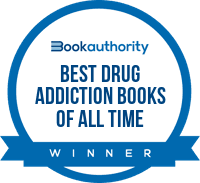As someone in recovery from alcoholism and Borderline Personality Disorder, I often get questions about the recovery process. To recover, I mostly did Dialectical Behaviour Therapy (DBT), which I now use to help others out of addiction and mental health problems. I then went on to use other tools and practices to work on my recovery further.
I must stress that everyone is an individual, but here are some questions I have been asked, along with my honest answers. I hope you find them helpful.
1. When did you realise that you had to stop drinking for good, rather than doing controlled drinking?
2. How did you know when treatment was working for you?
I realised that my own thinking, beliefs and behaviours were sabotaging me more than anyone or anything from the past or the present ever could. I had to decide that I would win in the end, and commit to doing that, no matter what. For me, for my family, for my cat. But mostly for me. Because there was no other choice.
All I was doing by fighting reality was losing. If I drank, I was just making myself incapable of solving problems. If I acted out, I was just making myself feel worse about myself. The only thing to do was thoroughly and utterly commit to doing the right thing by me, no matter how I felt. It was only by doing the right things that I even started to like myself.
Our behaviour is what gets us results, including changing how we feel about ourselves. One of my biggest realisations is that I don’t have to act on how I feel. I can choose to do the right things to move forward, no matter how I feel. I never regret doing the right thing, and I always feel better about myself when I choose to act wisely.
3. Was it a long time before you stopped having more bad than good days?
4. Sometimes Addiction and Mental Health services don't understand. Did you have this and how can this be resolved?
5. After you stopped drinking, did you switch to anything else, or was drinking the last coping mechanism?
6. How long after stopping drinking did you stop counting days sober, and realise that however hard the work was, it was worth it?
7. Do you believe anyone can recover like you did?
Yes. With all my heart.
If you'd like your questions about recovery answered, drop me a line This email address is being protected from spambots. You need JavaScript enabled to view it..
by Beth Burgess, Therapist and author of The Recovery Formula and The Happy Addict.




